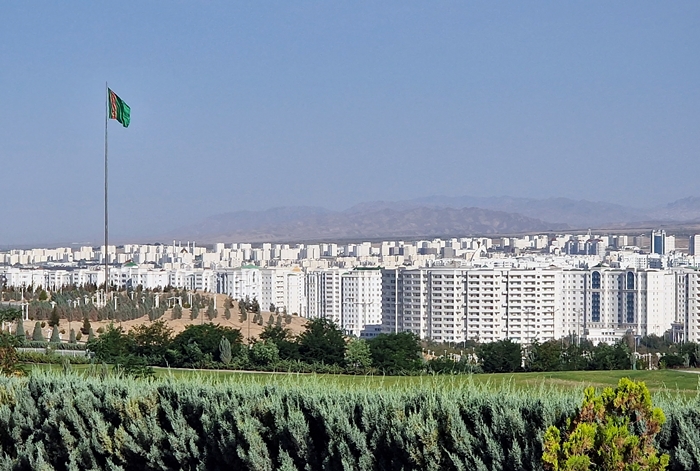Turkmenistan’s capital and major cities breathe easy, according to environmental experts. Air pollution indicators stay within established limits, despite the ever-present challenge of natural dust.
The Ministry of Environmental Protection, through its Environmental Control Service, diligently monitors air quality twice a day. Victoria Akopova, a specialist with the ministry and UNDP joint project “Sustainable Cities in Turkmenistan: Integrated Green Urban Development in Ashgabat and Avaza” project, told Neutral Turkmenistan newspaper that air samples are regularly analyzed for pollutants and dust.
Dust, particularly fine particles, poses the biggest threat to public health. The Environmental Service monitors dust levels closely and issues daily bulletins based on collected data.
Permissible concentrations of harmful substances differ across industrial zones, residential areas, and parks. These standards are set collaboratively by multiple ministries and departments, with input from medical professionals.
Akopova attributes the favorable air quality to several measures:
- Ban on outdated vehicles: Imports of older cars with certain engine capacities are prohibited.
- Restricted access for heavily polluting vehicles: Large trucks, earthmovers, and heavily polluting vehicles are banned from entering cities.
- Modernization of industry: Large factories and plants have been modernized or reconstructed, while new ones implement closed-cycle production and advanced wastewater treatment. For example, the Turkmenbashi Oil Refinery Complex complies with emission standards.
- Improved infrastructure and cleaner fuels: Upgrades to road surfaces, updated vehicle fleets, and production of unleaded gasoline all contribute to cleaner air.
- Enhanced monitoring: The “Sustainable Cities in Turkmenistan: Integrated Green Urban Development in Ashgabat and Avaza” project has equipped eco-monitoring stations with cutting-edge equipment, including field kits, chemical lab supplies, and even a refrigerant identifier. All devices are certified for use in Turkmenistan.
While natural dust remains a hurdle, these efforts ensure Turkmenistan’s urban air remains within acceptable limits, protecting the health of its citizens.
The project “Sustainable Cities in Turkmenistan: Integrated Green Urban Development in Ashgabat and Avaza”, funded by the Global Environmental Fund (GEF) and UNDP, is aimed at promoting the development of sustainable cities and reducing the negative impacts of urban growth in the country, such as reducing greenhouse gas emissions and air pollution, impact of increasing energy consumption and household waste, as part of the country’s efforts to achieve the socio-economic development goals. ///nCa, 21 December 2023
